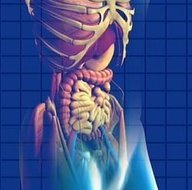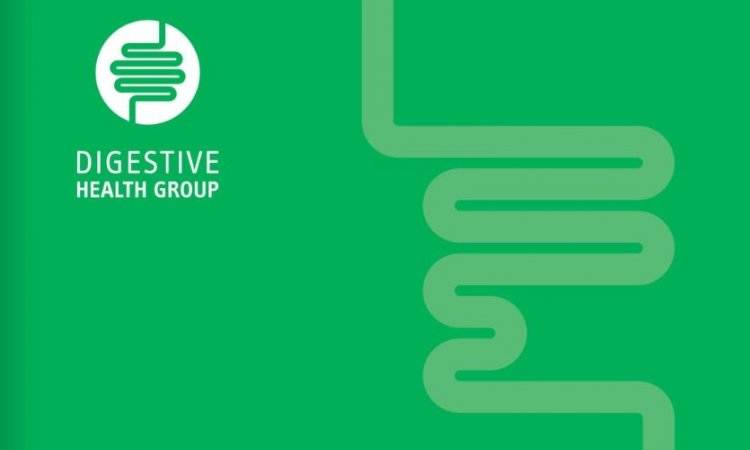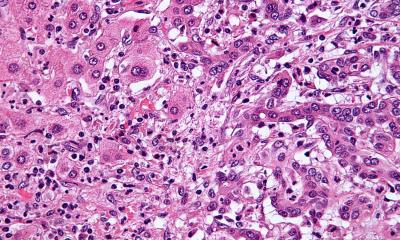News • Gastroenterology
High-fat diet can cause pancreatic cancer – but there's hope
A high-fat diet may promote the growth of pancreatic cancer independent of obesity because of the interaction between dietary fat and cholecystokinin (CCK), a digestive hormone. In addition, blocking CCK may help prevent the spread of pancreatic tumors to other areas of the body (metastases). The new findings are published ahead of print in the American Journal of Physiology—Gastrointestinal and Liver Physiology. The research was chosen as an APSselect article for August.

CCK is released by the small intestine and is associated with obesity. Dietary fat triggers the secretion of CCK; those who follow a diet high in saturated fats often have high levels of CCK. Previous research has shown that obesity and high-fat diets both together and independently increase the risk of pancreatic cancer. CCK also regulates regeneration that takes place after partial surgical removal of the pancreas. Pancreatic growth and regeneration occurs through interaction of CCK with CCK receptors, proteins that bind to CCK to produce a physiological reaction.
Researchers from Georgetown University conducted separate mouse studies involving the interactions between dietary fat, CCK and pancreatic cancer cell growth. In all studies, half the mice were fed a high-fat diet and the other half followed a normal diet.
- In the first study, half of the animals were treated with proglumide, a medication that blocks CCK.
- In the second study, the mice had tumors lacking CCK.
- In the third study, the mice were deficient in CCK and had pancreatic tumors.
Most patients with advanced pancreatic cancer succumb to the disease due to metastases; therefore a compound that blocks metastases, even when the primary tumor size is large, may have clinical significance
The researchers found that mice treated with proglumide had less tumor growth than the untreated mice, even when fed a high-fat diet. The mice lacking CCK also did not respond to a high-fat diet. These results suggest that CCK is needed to stimulate the growth of pancreatic cancer. The high-fat diet–fed micelacking CCK receptors did not show any tumor growth, suggesting that without receptors to bind to, increased CCK from dietary fat is unable to promote cancer.
Proglumide treatment also protected the mice from the development of excessive fibrous tissue (fibrosis) that can be associated with cancer metastases and resistance to chemotherapy. “Most patients with advanced pancreatic cancer succumb to the disease due to metastases; therefore a compound that blocks metastases, even when the primary tumor size is large, may have clinical significance,” the researchers wrote. “CCK [receptor] blockade may play a role in the treatment and prevention of pancreatic cancer.”
Source: American Physiological Society (APS)
04.08.2018





